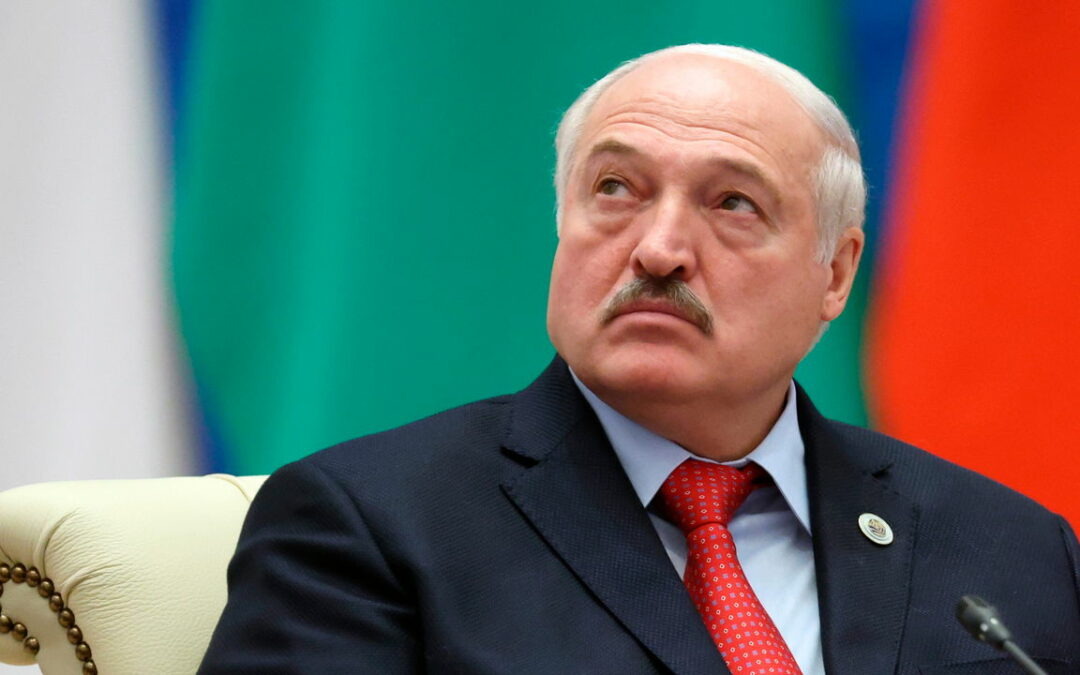MEETINGS BETWEEN Alexander Lukashenko and Vladimir Putin are often awkward. In September, when the Belarusian dictator ranted about men “running away” from mobilisation in Russia, his counterpart squirmed in his seat. That reflects their uncomfortable relationship. Mr Lukashenko relies on Mr Putin for economic, political and military support. He is blundering and boastful—often excruciatingly so. But he is also a man who never gives up negotiating. On June 24th he reputedly brokered a deal to end the brief mutiny of the Wagner Group of Russian mercenaries. Eager to prove his agency, he has claimed that he convinced Mr Putin to spare the life of Wagner’s boss, Yevgeny Prigozhin. Mr Lukashenko has been the rebellion’s biggest winner. But how much power does he really have?
Mr Lukashenko rose from relative obscurity. A former collective-farm boss, he was elected Belarus’s president in 1994, three years after the country was established from the wreckage of the Soviet Union. He clings to many of the vestiges of that era: communist symbolism, political terror and a state-controlled economy. Belarus subsists on loans and cheap energy from Russia and Mr Lukashenko owes his political survival to his neighbour, too. In 2020, when huge protests swept the country after the Belarusian strongman stole an election, Mr Putin promised that Russian police would support Mr Lukashenko’s violent crackdown. The demonstrations, which had threatened to overthrow him and his regime, began to fizzle out.
In return, Russia began to treat Belarus as its backyard. In February 2022 Russian troops invaded Ukraine from Belarus. (The two countries share a 1,084km-long border.) Russia’s army has relied on Belarus’s logistics network to bring in weapons and men to Ukraine, as well as to discreetly transport bodies home. In June Russia and Belarus announced that Russia had stationed nuclear weapons in Belarusian territory.
Mr Lukashenko’s role in ending Wagner’s attempted coup provided a rare reversal, as he rode to Mr Putin’s aid. The deal that the Belarusian leader helped broker reportedly involved safe passage and amnesty in Belarus for Mr Prigozhin. “Peacemaker of Slavic civilisation,” Belarusian news outlets cooed. In truth, Mr Lukashenko’s cameo was more messenger than negotiator; he was told to join talks late on. But the Kremlin has allowed him to take credit for the deal.
Repression and international isolation have made Mr Lukashenko and Mr Putin more reliant on one another than ever before. Still, they were and remain uncomfortable bedfellows. The Belarusian leader has pushed back against Russia’s attempt to integrate his country into its empire. From 1995 onwards a series of treaties bound the two countries tightly together, culminating in a “union state” agreement in 1999. It was signed during a different political reality, with the weakened Boris Yeltsin as Russian president and Mr Lukashenko as the elder statesman. That was the start of a sluggish process of economic and military integration. But according to leaked presidential documents, obtained by Yahoo News in February, Russia intends to speed things up and absorb Belarus by 2030—a plan Mr Lukashenko is sure to reject. There have already been lines he has not wanted to cross: he has refused to send his small and untested army to fight in Russia’s wars.
It is an open secret that the somewhat disobedient Mr Lukashenko irks Mr Putin. In 2014 the Belarusian dictator criticised Russia’s annexation of Crimea for setting a “bad precedent”. “Ukraine should stay a united, undivided, nonaligned state,” he said. (He later changed his mind when Belarus found itself financially squeezed by Western sanctions.) The pair have quarrelled over much from taxes to the price of milk. “They hate each other. But they need each other,” Franak Viacorka, a Belarusian opposition politician, has said.
An armed mutiny in Russia put Mr Lukashenko on top for the first time in over two decades, and reaffirmed his political resilience. Meanwhile Mr Putin has been weakened. But the fundamental balance of power in the relationship has not changed. Since the start of the invasion, Mr Lukashenko has been to Moscow 14 times; Mr Putin has visited Belarus just once. Belarus’s deepening international isolation as its regime cracks down on civic society has left it entirely reliant on Russia for its survival. Mr Lukashenko may dislike Russia’s imperial designs, but he has nowhere else to turn. ■









